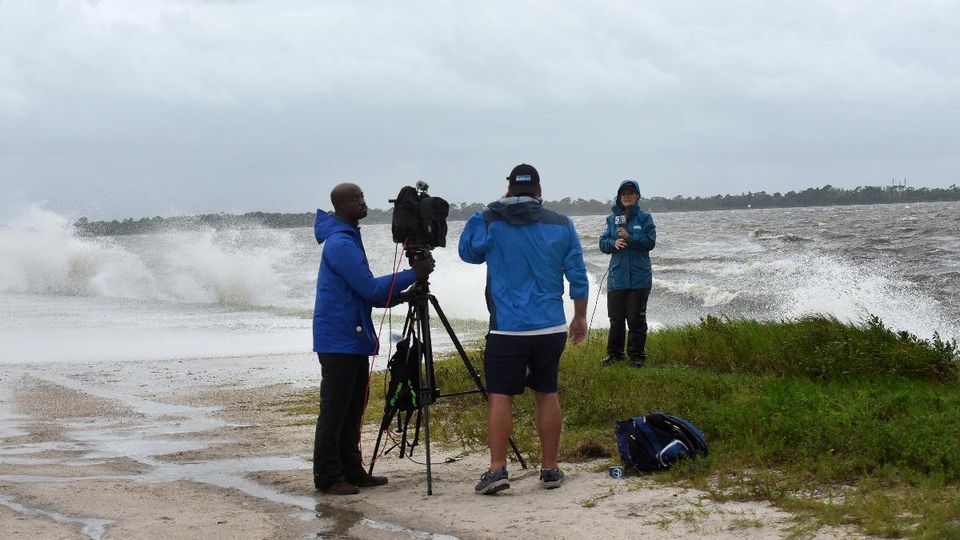Climate Must-Reads: All Things COP27 + How Fossil Fuel University Funding Fueled Support of Gas

Welcome to your new weekly roundup of climate coverage. For those of you who have been getting the Hot Take newsletter, this will be a little different from the digest—instead of a long list of all the week's climate coverage, you'll be getting a list of the 5 (or when necessary 6 or 7) stories, reports, or peer-reviewed studies you most need to know about to have a handle on climate each week.
As Twitter gets increasingly close to collapsing, I wanted to figure out a way to keep doing what I mostly do there—provide context and analysis on climate stories—in a post-Twitter world. This is an attempt to do that. So it won't just be a list of links, but will also provide some context on why a given story or report or study is important. Each newsletter will also be posted online, where subscribers (both free and paid!) are welcome to comment, ask questions, and share their own links. If folks like the idea of starting a Discord server to have more conversations around climate topics, I could set that up too, just let me know.
Thanks for being here, and hope you find this little experiment helpful!
Amy
Important COP27 Reading
The two big stories at COP this year are really two sides of the same coin. On the one hand, support for loss and damages is growing. Loss and damages is a mechanism through which Global North countries share some of the wealth amassed via building the fossil fuel industry with countries that are struggling to adapt to both climate impacts and the need for energy transition. Back at COP19 in 2013, Philippine delegate Yeb Sano made an impassioned plea as his home country was being absolutely battered by Super Typhoon Haiyan. "We have to ask ourselves, can we ever attain the ultimate objective of the convention, which is to prevent dangerous anthropogenic interference with a climate system?" he said. "By failing to meet the objective of the convention we may have ratified our own doom, and if we have failed to meet the objective of the convention, we have to confront the issue of loss and damage." He started a hunger strike that day, saying he would not end his strike until rich countries agreed to come to the table. And come to the table they did! At that COP, Global North countries agreed that by 2020 they would be putting $100 billion a year into a fund to cover climate loss and damages.
Not one country has fulfilled that initial promise. In fact for years, wealthy countries blocked everyone else from even having conversations about loss and damages. Somehow something that was already agreed to in 2013 became a controversial topic. Part of the reason African countries lobbied for this year's COP to happen in Egypt was that country's long-standing support of loss and damages, and sure enough Egyptian leaders negotiated to add it to the agenda early in the conference. While Scotland, Austria, Germany, Ireland, and Belgium have now committed loss and damages funding, the U.S. has proposed a "market-based approach," while new UK prime minister Rishi Sunak has met with fierce backlash for hinting at even being remotely open to the idea. Loss and damages was mostly ignored by the climate deny-and-delay crowd last year, but has become a central focus this year, particularly in the UK where conservatives are pushing the message that Britain can't possibly be expected to send billions to the Global South when working class British people can't even afford to heat their homes.
Which brings me to the other side of the coin: oil colonialism. While many African countries have lobbied for loss and damages at this COP, several are also lobbying for the right to use and develop fossil fuels for a longer time. And the fossil fuel industry has been embracing this idea as a "justice" strategy for the past several years. Forcing African countries off fossil fuels robs them of the ability both to benefit from the development that comes with cheap energy and, for those countries with their own fossil fuel resources, to profit from the development of fossil fuels. Which makes sense at first blush, but let's unpack it a bit shall we? First off, it's not up to anyone to "allow" the Global South to do anything, these are sovereign countries we're talking about. Second, there's a wave of oil colonialism afoot at the moment and it's being driven not by countries but by companies, specifically by European and American companies. The entities profiting from African and South American oil and gas are not the people of Namibia or Mozambique or Guyana, but companies like Total, Shell, and ExxonMobil. Which begs the question: If you want Global South countries to benefit from fossil fuel money, why not take it from the companies that have made the most off exploiting Global South resources? As Melinda Janki, a lawyer fighting against fossil fuel expansion in her Global South home country of Guyana put it to me: why not pay Global South countries for their services as carbon sinks? Janki also bristles at the idea that Global South countries need fossil fuels to keep pace with the rest of the world. "The Global North has basically broken the global climate system as a result of greenhouse gas pollution," she says. "And it's incredibly stupid for anybody to say, 'Well, because you did something bad and broke it, we now have a right to do something bad and break it even further.'" Janki also pointed out that encouraging Global South countries to start fossil fuel economies now, and encouraging them to delay transitioning to other energy forms, means they will be that much further behind when they do transition. "When people try to do solar here in Guyana what comes in is very poor. It's out of date, badly made panel—crap technology, basically. The usual story of a developing country being the place that you dump your substandard product."
She also points out that if you look at the communities living side by side with fossil fuel development, they're never rolling in oil money. On the contrary, they tend to be the poorest people, people who can't say no to having their homes polluted. "When people talk about the fossil fuel sector and riches, one thing they don't take into account is the fact that the fossil fuel sector has never had to pay for its pollution," Janki says.
"When you look at Norway and the idea that Norway has this trillion dollar sovereign wealth fund, which the Norwegians boast about, and this is held up as something wonderful. That's not a trillion dollar sovereign wealth fund. That's a trillion dollar sovereign debt to the planet because of the greenhouse gas pollution that Norway has emitted."
It's an interesting thing to think about in response to Kerry's oft-repeated statement that "no government in the world can afford the $1.3 trillion price tag" of loss and damages.
Reading list:
- There are 25% more fossil fuel representatives this year than last year—over 130 more for a total of 636. That means once again if the fossil fuel industry were a country (which let's face it, the industry has more geopolitical power than any country on Earth), it would have the largest delegation at COP27. (Source: UN data analyzed by Corporate Accountability, Corporate Europe Observatory, and Global Witness)
- Kate Aronoff has an excellent bit of analysis on the U.S. plan with respect to loss and damages: US Climate Envoy John Kerry is once again pushing a market-based approach to fund the transition to renewable energy in Global South countries.
- Bloomberg's Akshat Rathi is on the ground in Egypt covering COP. He teamed up with colleague Jennifer Dlouhy on an excellent look at how Kerry's carbon trading idea could fuel more greenwashing than emissions reductions unless it's very tightly regulated.
- The good folks at Climate Action Against Disinformation are putting out a daily bulletin on disinformation trends around COP27. I highly recommend signing up for it! In today's bulletin they note the spike in disinfo around loss and damages. "The situation is most acute in the UK," they note, "after a Nov 6 interview with former Labour Party leader and current Shadow Climate Change Secretary Ed Miliband on Laura Kuenssberg’s Sunday morning BBC programme," which indicated some level of openness to discussing the issue of loss and damages. The CAAD noted that critics prefer to talk about loss and damages as "climate reparations" when attacking the idea (which is extremely interesting given that the climate justice community also often refers to it thusly.) According to the CAAD, the most widely shared posts were those by journalist Toby Young, GB News host and former politician Nigel Farage, former MEP and Deputy Leader of the Reclaim Party Martin Daubney, Leader of the right-wing Reform UK Party Richard Tice, conspiracist Darren Grimes and Conservative Party MP Jacob Rees-Mogg (until recently Secretary of State for Business, Energy and Industrial Strategy). Several of the top posts shared mainstream media stories by the Daily Telegraph, Daily Mail and Daily Express, as well as content from smaller outlets like Guido Fawkes or the Daily Sceptic. Commentators affiliated with these outlets were also among those prominently attacking ‘climate reparations,’ such as Dan Hodges (Daily Mail) or Allison Pearson (The Telegraph).
In other news: Yes, fossil fuel funding at universities plays a major role in shaping policy
A peer-reviewed study out today in the journal Nature adds to the growing canon of literature that supports what seems like a no-brainer: when fossil fuel companies donate to universities, the resulting research tends to back up what the fossil fuel companies say, and feed into policy that does the same.
The study, conducted by Douglas Almand, Xinming Du and Anna Papp at Columbia University, found that the funding sources of various university energy centers played a major role in those centers positions on fossil gas. It's the first such study to consider the policy positioning of university-based energy centers using a “text as data” approach. Analyzing one million+ sentences, the researchers found that "fossil-funded centres are more favorable in their reports towards natural gas than towards renewable energy, and tweets are more favorable when they mention funders by name." Meanwhile, centres less dependent on fossil funding "show a reversed pattern with more neutral sentiment towards gas, and favor solar and hydro power."
The researchers opted to focus on fossil gas because of the rapidly shifting understanding around methane and its climate impacts in recent years. "Methane is at least 28 times more potent a greenhouse gas than carbon dioxide and is responsible for about 30 percent of the increase in global temperatures since pre-industrial times," they wrote in a blog post accompanying the study. "A central debate in climate change policy is the appropriate role of natural gas, 75 to 90 percent of which is methane. The IPCC recently wrote that 'mitigation of methane emissions is very likely to be the most powerful lever in reducing near-term warming.'"
All major fossil fuel companies produce natural gas. Since it generates less local pollution when combusted than coal or oil, natural gas was once positioned as a transition fuel likely to be the last fossil fuel standing. "But as estimates of methane leakage and venting rates have improved over time, primarily due to advances in satellite observation, natural gas’s climate-friendly credentials have evaporated," the authors wrote.
Enter university energy centers. The study found that Columbia’s Center for Global Energy Policy, MIT’s Energy Initiative, and Stanford’s Precourt Institute for Energy have received particularly large donations from the oil and gas industry. That's not easy information to find because, as Fossil-Free Research's Ilana Cohen talked about on our podcast episode about university funding, campuses are increasingly keeping their fossil fuel funding hidden. The Nature study recommends 100% transparency in funding, both in reports and in public-facing statements across all channels. "No policymaker should be surprised to discover that the fossil industry has funded seemingly-independent research that shaped their decisions, especially when this research is academically-branded," they wrote. "Financial disclosures need to be overhauled to prevent this. Given the fossil industry’s track record of disinformation, universities should disclose exact donation amounts, periods of support, and any funding conditions (e.g. pre-review of reports) whenever the fossil industry underwrites policy-related research, both at energy centers and elsewhere within the university. Because top academic centers write tweets that are more favorable when they mention their funders, social media profile pages (e.g. https://twitter.com/StanfordEnergy) should prominently disclose major fossil donors. Center-sponsored events that include either the press or policymakers should disclose major fossil funders. Turning to individual scholars/researchers/fellows/associates at energy centers, fossil support should be disclosed whenever they give testimony or otherwise seek to influence policy."
Although the study focused on policy-related funding and outcomes, its authors were quick to point out that funding that would be considered more "pure science" also has an eventual impact on both research outcomes and, ultimately, policy. The potential energy options a center might research, for example, could be shaped by funding.
Whether it's funding for scientific or public policy research, the authors note: "In a climate crisis, basic financial transparency toward the primary culprit should be a 'no brainer' for universities."





